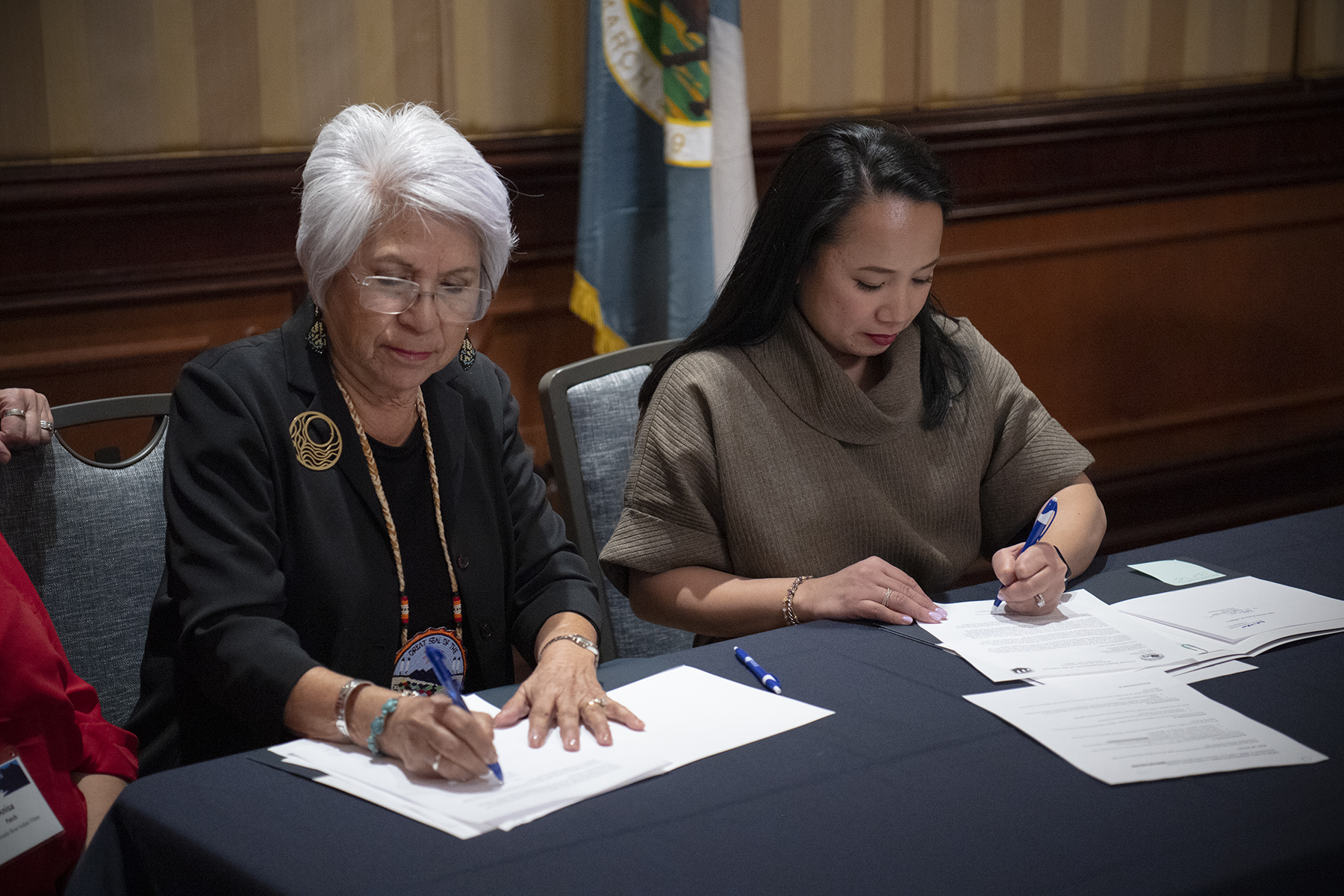The Colorado River Indian Tribes has signed a historic letter of intent with the federal Bureau of Reclamation as first steps in creating a new reservoir on the CRIT Reservation.
CRIT Chairwoman Amelia Flores and Bureau of Reclamation Commissioner Camille Touton signed the agreement side by side in Las Vegas on Wednesday at the Colorado River Water Users Association conference. Reclamation signed various agreements with several tribes at the event.
In the agreement with CRIT, Reclamation has agreed to fund a $5 million study of a ‘re-regulating reservoir’ on the CRIT Reservation. It is believed that the reservoir could save as much as 35,000 acre-feet of water a year at a time when severe drought conditions persist, and when water is currently being lost due to inefficiencies in Bureau of Indian Affairs operated irrigation systems.
The reservoir would help CRIT make better use of water the Supreme Court allocated to the Tribes and enable CRIT to put more than 5,000 acres of additional land in production.
“I learned from my ancestors that our creator Matavilya and his son provided the Colorado River for the Mohave and other indigenous peoples who live along its banks,” CRIT Chairwoman Amelia Flores said. “Matavilya also entrusted all of us with the sacred responsibility to care for and sustain the river and the environment that gives us life.”
The Study will also evaluate creating an associated wetland. To that end CRIT has partnered with the National Audubon Society and the Walton Family Foundation to protect CRIT’s water resources in a way that also protects its lands, fish, wildlife, birds, and ultimately its people. Chairwoman Flores added, “I am thankful for their constructive engagement and welcome them as partners in this project.”
In addition to Chairwoman Flores, CRIT Vice Chairman Dwight Lomayesva and several Tribal Council members also attended.
For years Chairwoman Flores, CRIT’s current leadership, and previous Tribal Councils have been fighting to make BIA operated irrigation systems on tribal land more efficient and to hold the BIA accountable. Flores notes there is a $300 million maintenance backlog, and she cautions the Letter of Intent being celebrated should not be seen as an excuse by the BIA to fall even further behind in upkeeping the irrigation project.
“We must do all we can to protect our water rights and ensure the water we do have is used as efficiently as possible,” Flores said. “We have a long way to go on both fronts. This Letter of Intent is an important step.”
The San Carlos Apache Tribe, Quechan Tribe, Ute Tribe and White Mountain Apache Tribe also signed water-related agreements at the event.
 Parker Live News from the Parker Strip since 2009.
Parker Live News from the Parker Strip since 2009.




